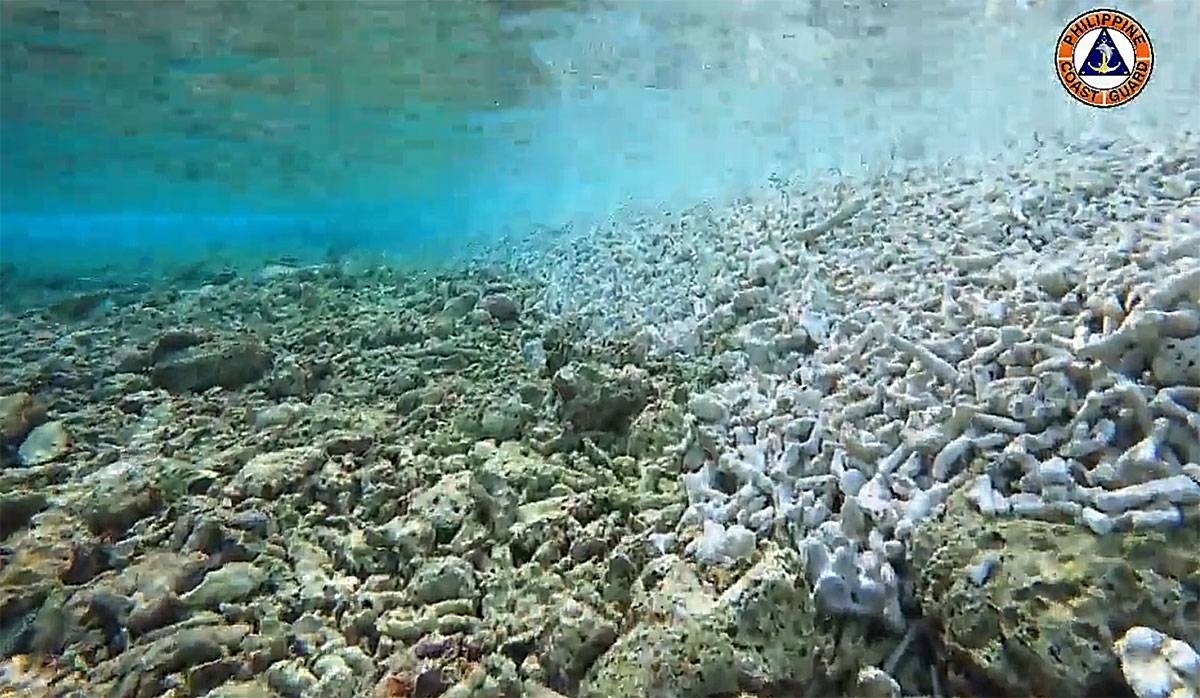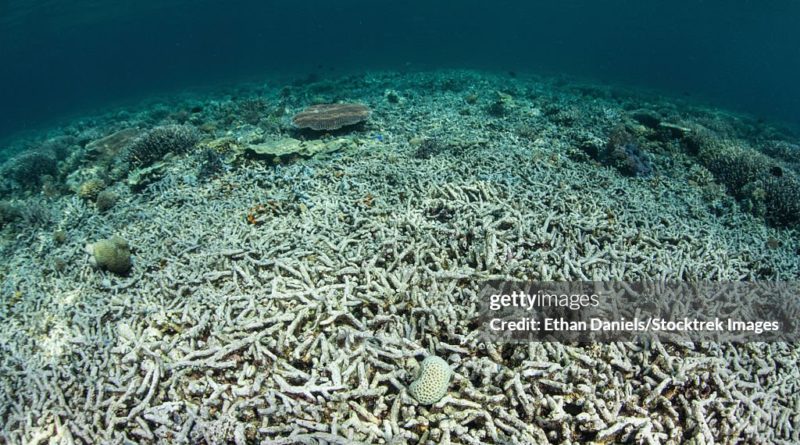ENVIROMENT | MANILA- Philippine-PH to file environment case against China
A Coral Reef Has Been Destroyed
.
.
STATE prosecutors are preparing a case against China that will be filed before the Permanent Court of Arbitration (PCA) in The Hague, Netherlands, for destructive environmental activity in the West Philippine Sea.
.
Department of Justice (DoJ) spokesman Assistant Secretary Jose Dominic Clavano said legal experts had briefed Justice Secretary Jesus Crispin Remulla and Assistant Secretary Raul Vasquez regarding the case

“We have seen many possible angles in this case, but the complaint is still being drafted and finalized. So we will have to wait and see if it can be done by the end of January or early February,” Clavano said at a briefing on Monday.
In September last year, Remulla said that with or without the Philippines’ territorial row with China, the environment case would still be filed for the sake of mankind “since the destruction of the environment is a sin against humanity.”
“We will pursue these cases against China since we already have a lot of evidence,” Remulla said without going into details.
He said the Philippine government had been gathering evidence for years, but the documentation only gained momentum “in the last few months” of 2023.
The filing of a new complaint against China before the Arbitral Tribunal was confirmed by the Office of the Solicitor General.
The announcement of the filing of an environmental case came after the Philippine Coast Guard (PCG) confirmed last year the report released by the Armed Forces of the Philippines (AFP) Western Command (Wescom) about the severe damage to the marine environment and coral reef in the seabed of Rozul (Iroquois) Reef, which is part of the Philippines’ exclusive economic zone (EEZ).
Rozul Reef was where about 33 Chinese maritime vessels were monitored to be “swarming” from Aug. 9 to Sept. 11, 2023.
The PCG said extensive underwater surveys of the Rozul Reef seabed that it launched showed that the marine ecosystem in the area “appeared lifeless, with minimal to no signs of life. ”
Surveys conducted in the Escoda Shoal revealed visible discoloration of the seabed, strongly indicating a deliberate attempt to modify the topography of the underwater terrain.
The report said the presence of crushed corals strongly suggests a potential act of dumping, possibly involving the same dead corals that were previously processed and cleaned before being returned to the seabed.
The PCG noted that the continued swarming of indiscriminate illegal and destructive fishing activities of the Chinese Maritime Militia at Rozul Reef may have caused the degradation and destruction of its marine environment.
The Philippines has sought the comments of the Arbitral Tribunal on environmental issues involving China in the South China Sea in the past.
A section in the July 12, 2016 ruling in the case filed by the Philippines against China with the Arbitral Tribunal stated that “China had caused severe harm to the coral reef environment.”
The tribunal was referring to China’s large-scale land reclamation and construction of artificial islands in the South China Sea, which it described as a “marine paradise” due to the “highly productive fisheries and extensive coral reef ecosystems, which are among the most biodiverse in the world.”
It ruled that China had “violated its obligation to preserve and protect fragile ecosystems and the habitat of depleted, threatened, or endangered species” and “inflicted irreparable harm to the marine environment.”
Damage from the illegal harvesting of giant clams by Chinese poachers was also pointed out in the arbitration ruling.
Scientists and marine experts testified before the tribunal that the process used by Chinese poachers in harvesting clams destroyed the coral reefs and may have actually caused more environmental destruction.
Chinese dredging and island-building activities have damaged or destroyed at least 55 square kilometers of reef, while the destructive methods of giant clam fishermen have destroyed 104 square kilometers of once-flourishing coral.
The tribunal also held Beijing accountable for the poaching activities.


 Memento Maxima Digital Marketing
Memento Maxima Digital Marketing







